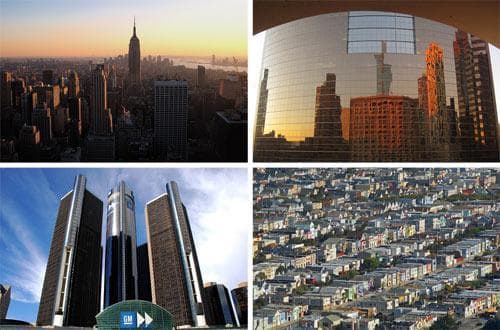Advertisement
America's Post-Crash Geography
Resume
Acclaimed urban theorist Richard Florida says that on the other side of this economic bust, America’s economic geography will be different. Some cities, towns, regions will roar back to new prosperity. Others, he says, may find a reshaped economy passing them by. Some may be history.
This hour, On Point: Richard Florida on the new geography of success in America — after the bust.
You can join the conversation. How do you see the crash reshaping the nation? When the dust settles on our financial bust, what industries, cities, regions do you think will rise? Tell us what you think.Guests:
Joining us from Toronto is Richard Florida, director of the Martin Prosperity Institute and professor of business and creativity at the University of Toronto Business School. He's the author of the international bestsellers "The Rise of the Creative Class" and "Who’s Your City?" His new article, on the cover of The Atlantic's March issue, is "How the Crash Will Reshape America."
Joining us from Detroit is Mayor Kenneth Cockrel Jr. He has served as interim mayor since September, following the resignation of Kwame Kilpatrick, and is running against 14 other candidates in the special mayoral primary election tomorrow.
This program aired on February 23, 2009.